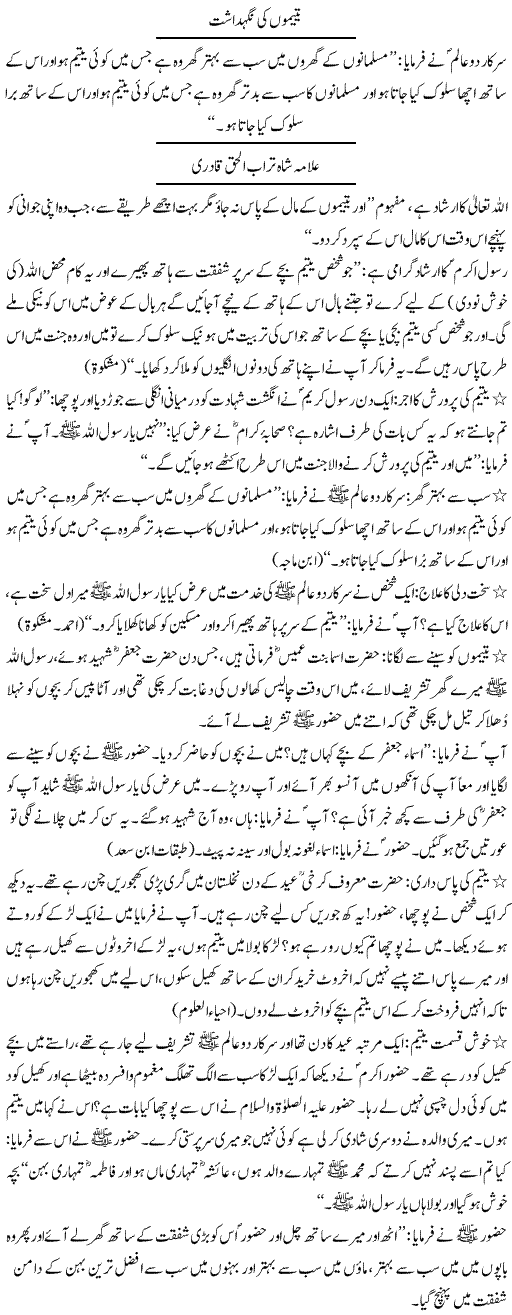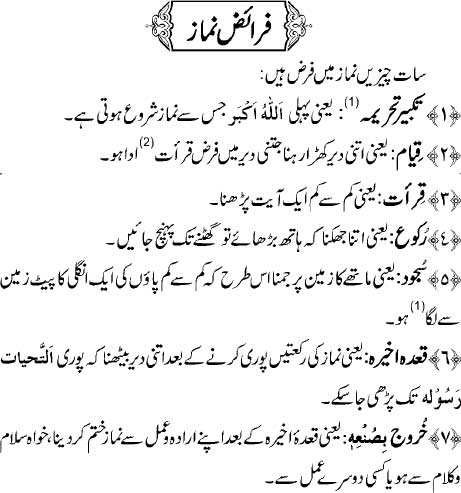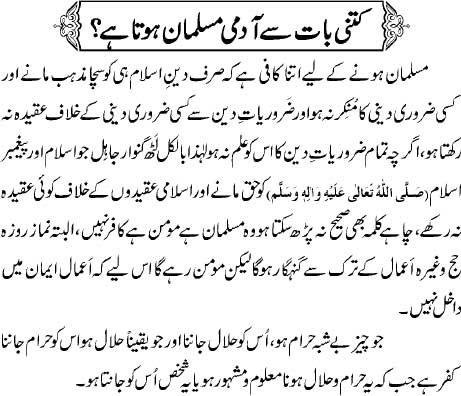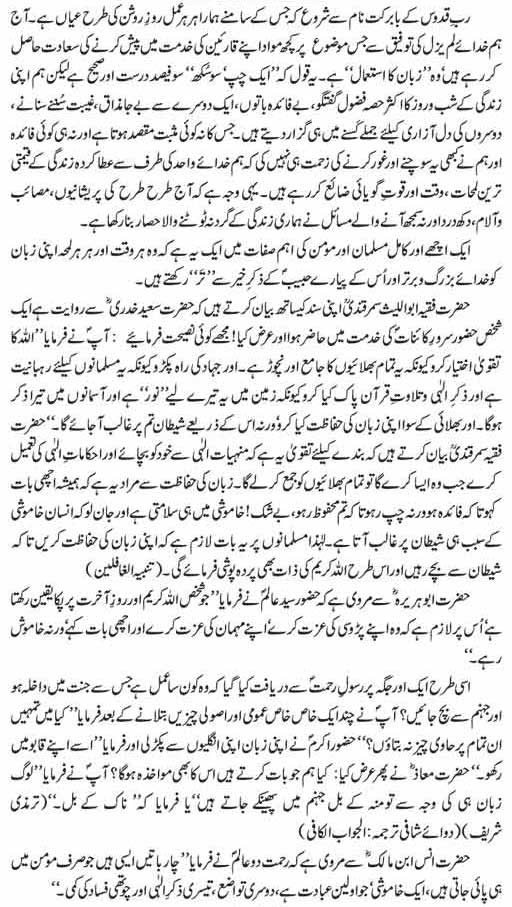
Road To Makkah: The Way To Allah
THE intention of performing Hajj has fixed times, namely within the months of Shawwal and Dhu’l-Qadah and the first days of Dhu’l-Hijjah; a Muslim cannot intend to perform Hajj except within these appointed times. There are also fixed places for intending Hajj (dependent on the pilgrim’s residence), which a pilgrim cannot pass without being in the state of Ihram.
At these places (miqat) the pilgrims perform ritual purification, pray two rak’ahs, make the intention of Hajj or Umrah, and raise their voices while chanting the Talbiyah. After that, the pilgrims have to avoid all the acts that harm their Hajj, such as wearing sewn clothes [this for men only], wearing perfume, shaving the head or cutting the hair, trimming the nails, killing game, cutting down trees, etc.
Just like pilgrims who begin their journey to Makkah in Ihram, Muslims can begin their way to Allah by sincere repentance, as Almighty Allah generally commands when He says: “… And all of you beg Allah to forgive you all, O believers, that you may be successful.” (24:31)
True repentance is represented in quitting sins, regretting them, resolving never to commit them again, and following the righteous way steadfastly. Repentance is not true if there is the intention to return to the concerned sin, for mere quitting does not mean sincere repentance.
For example, a person may quit a sin for some other reasons, such as giving up a sin for being unable to commit it or quitting drinking due to its physical harm while still being attached to it. This is not regarded as repentance, for repentance is a spiritual act followed by physical submission, seeking the pleasure and forgiveness of Almighty Allah.
To blot out any trace of sin through repentance, Muslims should observe piety and deeds of righteousness, for good deeds annul evil ones, as Almighty Allah says: And perform As-Salat (Iqamat-as-Salat) at the two ends of the day and in some hours of the night [i.e. the five compulsory prayers]. Verily! the good deeds remove the evil deeds. This is a reminder (advice) for the mindful (those who accept advice). (11:114)
Another condition for repentance is that if the concerned person owes people any rights unjustly taken away, he or she should return them or seek their forgiveness. The Messenger of Allah (peace be upon him) once asked his Companions, “Do you know who the insolvent is?” They replied, “An insolvent man among us is one who has neither dirham with him nor wealth.” The Prophet said, “The insolvent of my Ummah would be the one who would come on the Day of Judgment with prayers and fasts and Zakah but (he would find himself bankrupt on that day as he would have exhausted his funds of virtues since) he hurled abuses upon others, brought calumny against others, unlawfully consumed the wealth of others, shed the blood of others and beat others. Thus, every one of them would be given of his good deeds (that is, his virtues would be credited to the account of those who suffered at his hands). And if his good deeds fall short of clearing the account, then he would be given of their sins and he would be thrown into the Hellfire.”
When Muslims start their journey to Makkah through sincere repentance, they begin spiritually rising from the stage of the evil-commanding soul to that of the self-reproaching soul until finally, they reach the stage of the tranquil (righteous) soul. The evil-commanding soul is accompanied by Satan, who leads it astray, gives it false promises and dreams, blinds it to ugliness, and carries it off to an abyss. However, the self-reproaching soul reproaches one for the negligence of one’s duties toward Allah, pushing one forward to righteousness and obedience and leading one to safety from the Hellfire. As for the tranquil, righteous soul, it is the one that is reassured by wisdom and decrees of Almighty Allah and follows in the footsteps of the prophets and the righteous. Therefore it deserves Almighty Allah’s reassurance when He says : (It will be said to the pious — believers of Islamic Monotheism): O (you) the one in complete rest and satisfaction! Come back to your Lord, – well-pleased (yourself) and well-pleasing (unto Him)! Enter you, then, among My honored slaves, And enter you My Paradise! (89:27-30)
Namaz Kay Faraiz

Allah And Evil
Good and evil are not alien to humankind. Humans are equipped with a sharp vision to separate the former from the latter. More often than not, he strikes the right choice between right and wrong. Even where he fails, he is found to have another good sense. This sense helps him appreciate the correct choice when someone else distinguishes
between good and evil. While he appears to be instinctively inclined to good in order to personify it, he seems to experience strong repulsion to evil – so much so that he wants to eliminate it altogether. His adherence to good makes him feel relieved, contented, and humble. And his submission to evil causes him to feel low, embarrassed, and arrogant. However, perpetual adherence to either virtue or vice determines the course of his life before too
long. Little does he deviate from this course once it is set by his conscious compliance with either of them – he is then destined to reach the destination defined by his own actions.
The Holy Quran says that the Lord has shown him both these ways. In addition to blessing him with eyes, tongue, and lips, he also blessed him with the knowledge of right and wrong (Quran 90:9-10). In more than one place, the Quran reinforces that man knows both ways and it is up to him to choose whatever he may wish; he can either become thankful by taking the correct course of life or be unthankful by treading the path of evil (Quran 76:3). The Lord indeed has inspired him the boundaries to respect and the vices to avoid that lie beyond them (Quran 91:7-8). The assertions of the Quran can hardly be disputed since they depict a phenomenon commonly observed. The
tradition of the majority of humankind seems to be pregnant with narratives of how they have cherished the good virtues and loathed the despicable ways of evil. The annals of history record the awe-inspiring anecdotes of the sacrifices made for upholding the virtue of justice, and eradicating the evil of oppression. From a simple shoemaker to a grand emperor each has made unforgettable contributions to the preservation of virtues and elimination of
evil. It is therefore highly improbable that we can put down the assertions of the Holy Book regarding the human knowledge of right and wrong.
Despite our instinctive impulses to comply with our knowledge of good and bad, the Holy Quran enjoins us to remind each other of the mutual teaching of Truth. It is true that we have the knowledge; we nonetheless have other frailties that obstruct perpetual adherence to good. The Holy Book recognizes that to have this knowledge does not mean that we have acquired a knack and that we are now preconditioned to do good (Quran 103:3). For if we were
conditioned, there would have been no reward for us in the Hereafter. To confuse knowledge with conditioning is to overlook the central problem in most issues facing humankind on the face of this earth. Unless hypnotized by falsehood, man will carry out good works by his own free desire. To galvanize human desire in the favor of good, one needs to be reminded constantly. It is a duty prescribed for us – to help others and be helped in order to lead a life that is virtuous.
Kitni Baat Say Aadmi Musalman Hota Ha?

Marriage Between The Two Eids
THE Islamic approach is to regulate the satisfaction of the sexual urge in a way that allows it to operate within certain limits, neither suppressing nor giving it free rein. This is the stand of the revealed religions, which have instituted marriage and have prohibited fornication and adultery.
In particular, Islam duly recognizes the role of the sexual drive, facilitates its satisfaction through lawful marriage, and just as it strictly prohibits sex outside of marriage and even what is conducive to it, it also prohibits celibacy and the hatred of women. The claim that marriage between the two Eids, a period of time that extends for about 70 days, is prohibited has no religious backing. What is known in Islam is that there is no religious reservation against marriage in all months and on all days as marriage is best welcomed at all times because it is a religious observance and a Prophetic Sunnah. He who gets married has really completed half of his religion and guarded himself against temptation.
There is nothing in Islam that prohibits performing marriages at any time of the year. The only restrictions pertaining to consummating marriages are during certain times. For instance, it is not allowed to consummate a marriage while fasting, or while one is in a state of consecration or Ihram for performing Haj or Umrah. But as far as solemnizing marriages is concerned, there is no restriction to solemnizing them at any time of the year.
Despite the clear teachings of Islam on this issue, we find a lot of misconceptions prevailing among Muslims today. The source of such misconceptions can be traced to the pagan superstitions about bad omens that were prevalent before Islam. Unfortunately, such superstitions are still widely prevalent today.
However, in Islamic terms, the Prophet (peace be upon him) strongly opposed such superstitions and categorically declared: “There is no bad omen.” He taught us that only Allah has the power to bring benefit or inflict harm. He further encouraged us to have positive thoughts and use all our resources and then put our trust in Allah.
Mein Iss Dawat e Haq Par Tum Say Koi Ajar Nahi Mangta

The Origin Of Man
Indeed, We create man out of the essence of clay, then We place him, a living germ, in a safe enclosure. Then We create out of this living germ a clot of congealed blood, and out of the clot, We create an embryonic lump. Then We create within the embryonic lump bones, then We clothe the bones with flesh. We then bring this into being as another creation. Exalted be God, the best of creators.
(The Believers, Al-Mu’minoon, 23: 12-14)
The surah givers a detailed account of the qualities and characteristics of believers. The verses quoted above point out the indications available within man himself leading to faith. They speak of the various stages of development of a human being, starting with the very beginning of human origin, and ending with resurrection on the Day of Judgment, to establish a firm link between this life and the life to come.
The gradual formation of man, following the same sequence, confirms first the truth of the Originator, and also the deliberate planning in the course it follows. This cannot be the result of a blind coincidence. Nor can it be a random beginning at first and then a consistent line that never fails or deviates, when we could reasonably think of numerous courses it could have followed. The truth is that human beings come into existence in the way they do because their Creator wants it this way, and He does things according to His own plan and design.
Moreover, giving this full picture with the different stages shown to follow each other without fail also indicates that belief in the Creator who plans everything and following the course of action believers follow, as indicated in the first eleven verses of this surah, is the only way to achieve the perfect standard human beings can achieve in this life and in the hereafter. Thus, the two opening passages of the surah are interlinked.
“Indeed, We create man out of the essence of clay.” This statement implies that there are stages in the creation of human beings, without specifying them. The implication is much clearer in the Arabic original where the term is given in English as ‘essence’ also connotes a chain of development. Hence, it means that man goes through different stages, one leading to the other, from the very first beginning of clay to the eventual creation, man. This is a truth we get to know from the Qur’an. We do not need any confirmation for it from scientific theories concerned with the origin of man or other living things.
The Qur’an establishes this truth, presenting it as an area for contemplation on God’s work and design. Thus, we can deeply contemplate the great divide between the clay and man who came from that clay through a succession of stages. The details of this succession are not mentioned because it is unimportant to the wider aims of the Qur’an. Scientific theories try to find a definite ladder for the origins and evolution so that they can establish the chain leading from the clay to man. In their attempts, these theories may come up with some true conclusions and may make mistakes. We may not confuse the truth established in the Qur’an, which mentions the succession of stages, with the attempts made by scientists to establish the different stages of succession. These attempts are always open to error, proving today what it may disprove tomorrow in the light of advanced techniques and technologies.
This truth is sometimes expressed very briefly in the Qur’an, when it says: “The creation of man began with clay.” Here we have no reference to the stages through which man’s creation goes. The ultimate reference then is the most detailed Qur’anic text, which refers to a “succession of stages”. We should remember that the Qur’an uses a more general or shorter text, only because it is more suitable to the context in which it occurs.
How has man evolved from the essence of clay is not given in the Qur’an, because it is not part of the Qur’anic objectives. The stages of this succession may be exactly as scientific theories suggest or may be different. It may happen that man will be able to formulate an accurate idea of such succession. However, the parting point between the Qur’anic view of man and the way scientific theories look at him is that the Qur’an honors man, stating that a measure of God’s spirit has been breathed into him to make him a man with the qualities and characteristics that distinguish man from animals. In this, the Islamic view is fundamentally different from that of all materialist theories. God certainly tells the truth.
This applies to the origin of the human race: It starts from the essence of clay. As for individual human beings, they go through well-known stages: “We place him, a living germ, in a safe enclosure.” The creation formula that brings about new individuals of the human race, and their method of reproduction, follows a line set by God. A drop of fluid is discharged from the man to settle in the woman’s uterus. It is not the whole drop; rather, a single cell out of hundreds of thousands forming this drop. It settles in this ‘safe enclosure’ in the uterus which is supported by the hipbones, protecting it from the shocks and knocks that occur to the body as one moves about.
The Qur’anic text makes the sperm a stage in the succession of man’s creation, coming immediately after the existence of man. This is true, but it also deserves contemplation. A human being in his full stature, and with all his features, elements, and characteristics, is enclosed within this cell of sperm. It then develops into an embryo when it begins its new existence through a new series of stages.
Zaban Ki Hifazat Kay Ahkam

After Ramadan
The Holy month of Ramadan came like seasonal rain and passed by. This rain did not water the plants and crops -it showered upon the hearts of believers. It is sad, but true, that the hearts of the majority of Muslims are stricken with spiritual drought and spiritual decadence. It is a drought caused by excessive indulgence in un-Islamic activities, immoral behavior, unjust actions, unfair dealings, etc. Drought caused by lack of rain destroys crops -drought caused by lack of piety, lack of fear of Allah, and lack of Allah consciousness destroys the SPIRITUALITY of the heart.
Ramadan’s spiritual rains brought to life the Masaajid and other prayer places. Ramadan had fanned the dying spark of charity . Ramadan had awakened the dying spirit of tolerance, patience, and sympathy for the less fortunate.
Now that we come to the end of Ramadan the big question is what to do? Did we go through all the spiritual exercises in Ramadaan in order that we may have the freedom to indulge, on Eid day, in all types of immoral, shameless, and indecent amusement? Did we restrain ourselves from halaal food, drinks, and other pleasures from dawn to sunset throughout Ramadan, so that we may return with renewed vigor to gambling, drinking, adultery, and fornication? Will the spirit of tolerance, mercy, patience, charity, and sympathy be still evident, or will these noble qualities be shelved until the dawn of the next Ramadan?
Will the Masajids which were filled on most nights in Ramadan remain the same or will they become empty wondering where the faithful have gone? Our lifestyles after Ramadaan will show whether we used the month to bring about a total reformation within ourselves or are we going to waste the valuable opportunity?
The National and international position of the Muslim communities leaves much to be desired. Muslims are lamenting the loss of lives, destruction of property, oppression, tyranny, injustice, and a host of other problems all over the world. They are wondering why the promised help of Allah to the believers is nowhere in sight. Just one glance into the lifestyles of the overwhelming majority of Muslims is sufficient to answer the question. Millions of Muslims do not have much to their credit besides Muslim names.
Allah’s help comes with action and Islamic qualities -not with names or faces – Arabs or non-Arabs, African or European, Chinese or Indians. On the other hand, every group, organization, society, or individual who talks about Islam, seems to have got its own brand of Islam. The Islamic teachings which were left behind for us, crystal clear and pristine pure, have become so adulterated with foreign customs, alien practices, and un-Islamic ideologies, that a new Muslim has to make an effort to search for the Quran and Sunnah brand of Islam or remain confused and ignorant.
May Allah Ta’ala on the occasion of Eid give us the guidance to resolve that we shall make the Quran and Sunnah our guiding lights and practice Islam as much as possible. If the non-Muslim inhabitants of our country see Islam in the lives of Muslims, they will not require much persuasion to accept our beautiful deen.

